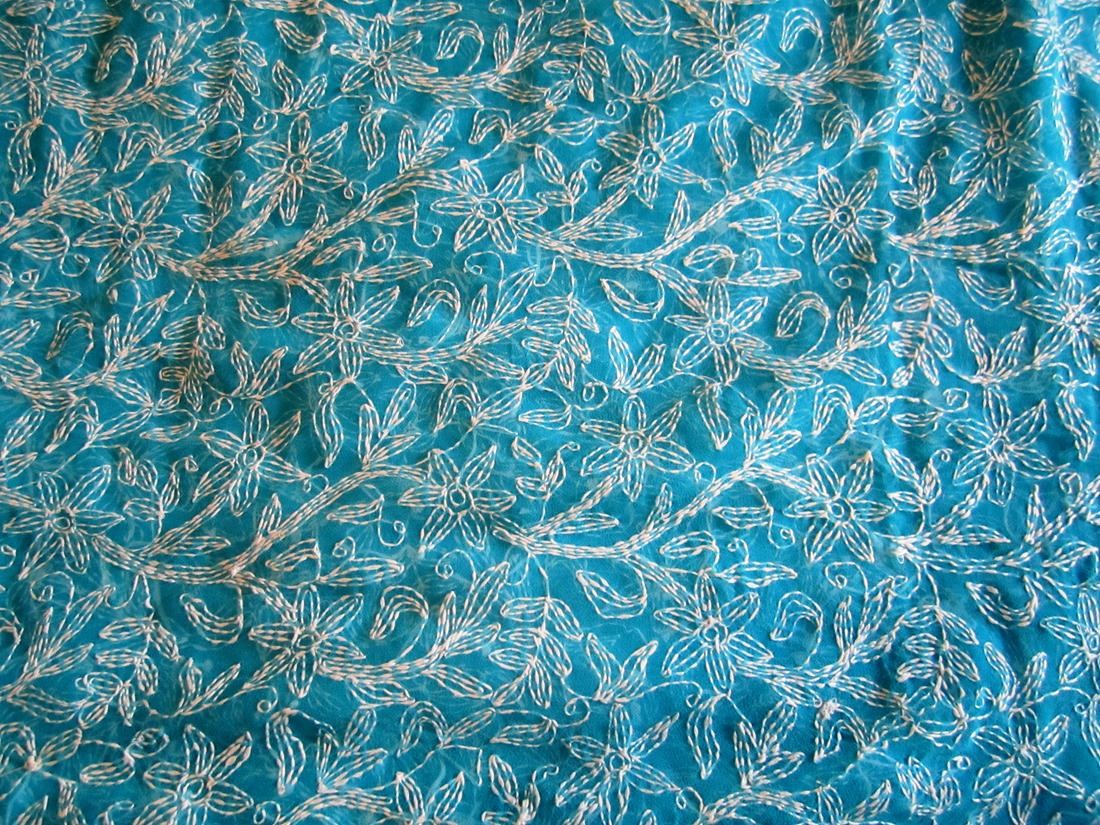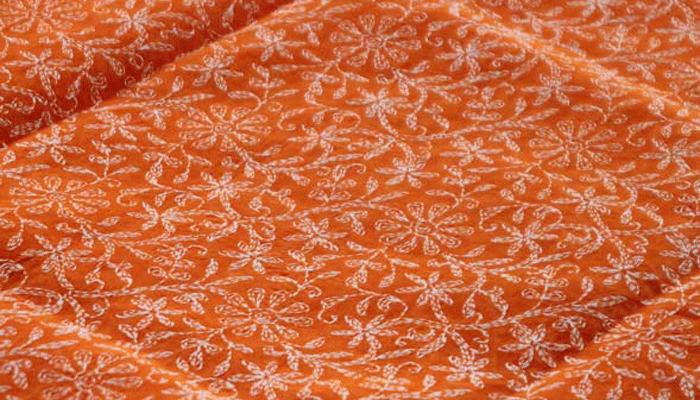TRENDING TAGS :
Will GST sound the death knell for Lucknow's chikan industry?
Lucknow: There is uncertainty in the chikankari industry, that provides employment to some half-a-million people, due to the rollout of the Goods and Services Tax (GST). Many stakeholders feel the new tax regime has rung the death knell for the already struggling craft.
Chikankari made its way to India from Persia, with Mughal emperor Shahjahan's wife Nur Jahan, who introduced it in the 15th century. Delhi was the hub of chikankari in the Mughal era, with the last of the royals, Bahadur Shah Zafar, promoting it and making it a bread-winner for millions. The demise of the empire saw the hub shifting to Lucknow.
So how is the GST going to affect chikankari?

Industry insiders say that the big ticket trade in chikan would be badly hit by the levy of GST on their products, while small timers are at their wits' end trying to figure out how to tackle the new regime as they already have soaring costs and very little returns.
There was a proposal to tax the chikan industry way back in 2003 by then Finance Minister Jaswant Singh but he was ticked off by his boss, Prime Minister Atal Bihari Vajpayee, who represented Lucknow in the Lok Sabha. Vajpayee had said then that chikan work was reflective of the rich heritage and culture of the land of Avadh and should be kept out of the tax ambit.
Fourteen years later, Finance Minister Arun Jaitley has thought otherwise, bringing chikan work under GST. Now, any sale below Rs 1,000 ($15) will attract a tax of five per cent while any sale above that will attract a 12 per cent levy. Traders and artisans are still unable to absorb the shock and are opening shops with black ribbons tied to their arms as a mark of protest.
More than 10,000 traders are involved in the business of chikankari, most of them in the Chowk area of the old city. More than 550,000 skilled and unskilled workers are involved in taking forward the rich handicraft tradition, which has not only found takers in the domestic market but has takers globally.
"What do we do now," asked Salim, one of the small-time traders in Chowk, who told IANS that if this was what was in offing they will soon be forced to shut shop. The costs, he rued, were already high and now the GST was set to "throw them off balance".
Mahatv Tandon, one of the big players in the market and proud supporter of the ruling BJP, is now no longer a party bhakt.
He decried the new tax and said that for the chikan industry, which was already struggling to survive, GST is "very bad news".
People in the 70 villages where more than 160,000 families are involved in the trade -- about 80 per cent of them women -- want the tax to be reversed.
Munni, one of the women involved in chikan work, said that she would request Prime Minister Narendra Modi and local MP Rajnath Singh, India's Home Minister, to reconsider this maut ka farman (order of death).
IANS



